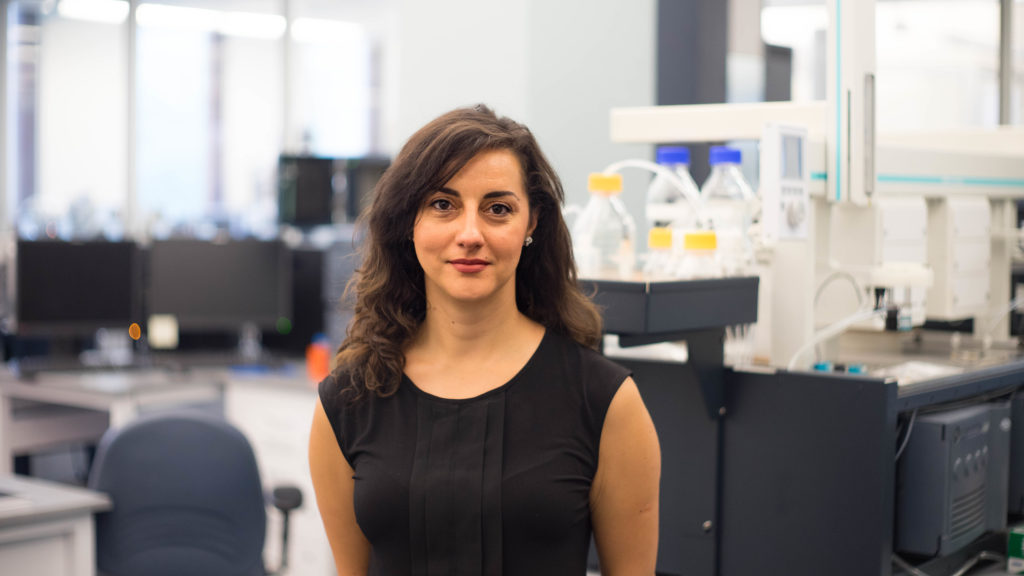By Derek Schuster & Caroline Boschetto, news staff
A protein research project collaboration involving Northeastern University (NU) researchers recently received a second grant from the National Institutes of Health. The project’s goal is to better understand the inner workings of a complex group of proteins in the hopes of getting closer to curing a variety of diseases.
Northeastern professors of chemistry John Engen and Roxana Iacob were introduced to the project in early 2014 by Professor Timothy Springer, an immunologist and structural biologist at Harvard Medical School and the Boston Children’s Hospital. Information on the amount of funding the project received was not available to the News at the time of publication.
The researchers are working on a class of proteins known as Transforming Growth Factor beta (TGF-β). Scientists have established that this protein class transmits information instructing cells to either grow, divide or kill themselves, but little else about TGF-β is known.
“It’s not so well-studied, and there’s not much structural information,” Iacob said. “But from a medical view, it’s a very important topic.”
The trio began working on the project in January 2014, with Engen and Iacob using one method of research in Engen’s lab at Northeastern and Springer using another at his.
Engen and Iacob are using a method of research known as Hydrogen/Deuterium Exchange Mass Spectrometry (HDX MS).
“This technique [HDX MS] has been pioneered by Dr. Engen and is now used worldwide, especially in industry,” Iacob said.
The proteins in question are known to be involved with many diseases, and the researchers believe that a better understanding of them could possibly lead to the development of new drugs for diseases such as cancer, heart disease and diabetes.
Specifically, the behavior of these proteins can be a factor in growth of cancers when they misinform cells to grow when they shouldn’t, according to Iacob. Deciphering these proteins could potentially lead to improved cancer treatments.
“[The] long term impact would be to try to understand from a structural point of view how these proteins actually function,” Iacob said.
Out of 33 different proteins in the TGF-β family, scientists have only begun to understand 10.
Kristian Teichert, a senior biochemistry major at NU, has done research work for Engen for over three years. Teichert said he believes that the work Engen is doing is having a large impact in the field.
“He works on a lot of really relevant projects,” Teichert said. “It’s definitely really important for understanding how a lot of proteins work and how they operate.”
Teichert said he believed Engen, Iacob and Springer’s research could one day alter and improve the treatment of diseases caused by TGF-β proteins.
“Understanding the class of proteins that this paper is on definitely has a fantastic opportunity to greatly impact all of those [diseases],” Teichert said. “I have no doubt that it definitely does have that level of impact and is actually really, really awesome.”
Iacob said there is no set end date for the research.
“It will end whenever we solve the problems,” she said, laughing.
Photo by Alex Melagrano









